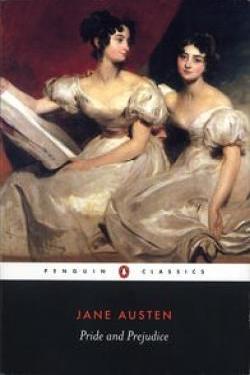 There has been an interesting (disconnected) series of articles over at The Spectator (UK) on whether or not feminism is “finished.” One young feminist, Emily Hill, does not bother asking the question, but simply asserts: Feminism is over, the battle is won. Time to move on:
There has been an interesting (disconnected) series of articles over at The Spectator (UK) on whether or not feminism is “finished.” One young feminist, Emily Hill, does not bother asking the question, but simply asserts: Feminism is over, the battle is won. Time to move on:
Most self-styled feminists argue that we still struggle in the workplace. On close inspection this isn’t borne out either. Women in their twenties have out-earned men for the last few years; now the under-40s are doing so as well. The speed of our trajectory is startling. Across Europe and America, and particularly in Scandinavia, women are pushing their way on to executive boards and into the seats of power. The French government has passed a law which will require that two in five executive board members of the largest public companies are women. Feminists argue we need quotas in this country, too, but isn’t there a sweeter triumph in the sisters doing it for themselves?
In a second article, another commentator asserts that Women’s issues are for everyone now, not just feminists. In this article (written by a man) we hear that,
That protest was exactly the kind of women-only activism that makes headlines and noise and achieves nothing of substance. It shows that the label ‘feminist’ and the world view of feminism has served its historical function. Feminism has much to be proud of. But now it’s an impediment to progress.
Finally, archetypal feminist Germaine Greer is in the headlines again, this time accused of “having no place in feminism!”
Alarmingly, Cardiff’s feminist students are running the campaign to shut Greer down. The petition for her lecture to be cancelled was started by the student union women’s officer, who says Greer’s views have ‘no place in feminism’. What a spoilt, ungrateful generation, hilariously unaware that their very ability to speak their minds and rouse some rabble is down to decades of intellectual and social agitation by people like Greer. She helped give them a voice; they try to silence hers. (See: Germaine Greer can say whatever she likes about trans politics.)
So, is feminism “finished”?
Perhaps in some ways the historic movement of feminism has achieved its primary objectives in western societies, or will, as increasingly educated and accomplished women move into more and more influential positions in all sectors of western society.
Still, in my view, more work remains to be done, and not simply by women. The dreadful and ongoing scourge of domestic violence here in Australia is testimony to the continuing difficulty men and women have in establishing mutually respectful and equitable relationships.
Further, women and girls in western and non-western countries are sometimes – too often – subject to the most terrible abuses. Much of this abuse is centred around destructive sexual practices, and in some cases, is largely ignored by western feminists. A female columnist in The Australian last week (sorry, I cannot remember or access the article) blasted her feminist counterparts in this country for their celebration of the sex industry as a sign of female empowerment, and for their apparent lack of concern for women and girls caught in prostitution and sex-trafficking both here and abroad.
The issues are difficult, contentious, and very, very important. Globally, terrible abuses continue to be meted out to women and girls. Vigilance by both men and women are required to ensure that some of these same abuses do not take root in western countries. If western feminists ignore the very real plight of women globally, and the equally real threat toward women in their own cultures; if they seek refuge instead in what a feminist friend labels “outrage at micro-aggressions,” then perhaps feminism is finished after all.
